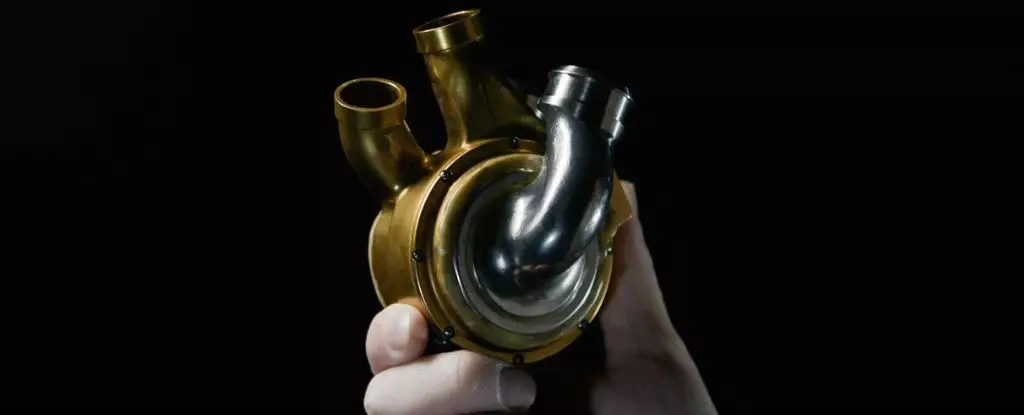The medical world has been buzzing with excitement over the recent breakthrough in artificial heart technology. A 58-year-old man in the United States made history by becoming the first person in the world to receive a temporary, titanium blood-pumper designed by BiVACOR. This innovative device is a total artificial heart (TAH) that aims to replace the full function of a human heart for as long as possible. Unlike traditional artificial hearts, BiVACOR’s TAH does not beat like a real heart. Instead, it relies on a powerful, magnetically levitating rotor to pump blood throughout the body. This groundbreaking design is not only efficient but also resistant to corrosion and mechanical wear.
The BiVACOR artificial heart represents a paradigm shift in the field of artificial heart technology. Powered by a small, external controller, this device offers a portable and life-sustaining solution for patients with end-stage heart failure. The successful implantation of the titanium heart at Baylor St. Luke’s Medical Center at the Texas Heart Institute has paved the way for future advancements in cardiac care. According to Daniel Timms, the founder of BiVACOR, the achievement would not have been possible without the courage of the first patient, the dedication of the medical team, and the expertise of collaborators at The Texas Heart Institute.
While real donor hearts remain the best treatment option for severe heart failure, the availability of suitable donors is limited. Artificial hearts like the BiVACOR TAH offer a vital lifeline for transplant-eligible patients at risk of imminent death. Unlike other artificial hearts on the market, the BiVACOR device is designed to last. With four years of successful performance in lab tests, this cutting-edge technology has the potential to significantly impact the treatment of heart failure worldwide. The recent FDA approval for up to five patient implants in 2024 marks a significant step forward in artificial heart technology.
The development of the BiVACOR artificial heart heralds a new era in cardiology, with the promise of long-term mechanical replacements for failing human hearts. The global impact of this technology is expected to be tremendous, offering hope to patients with end-stage heart failure. As additional transplants are scheduled in the near future, the medical community eagerly anticipates the positive outcomes that this innovative device will bring. The ongoing clinical study of the BiVACOR TAH is poised to revolutionize the field of cardiac care and improve the quality of life for patients in need of heart transplants.


Leave a Reply